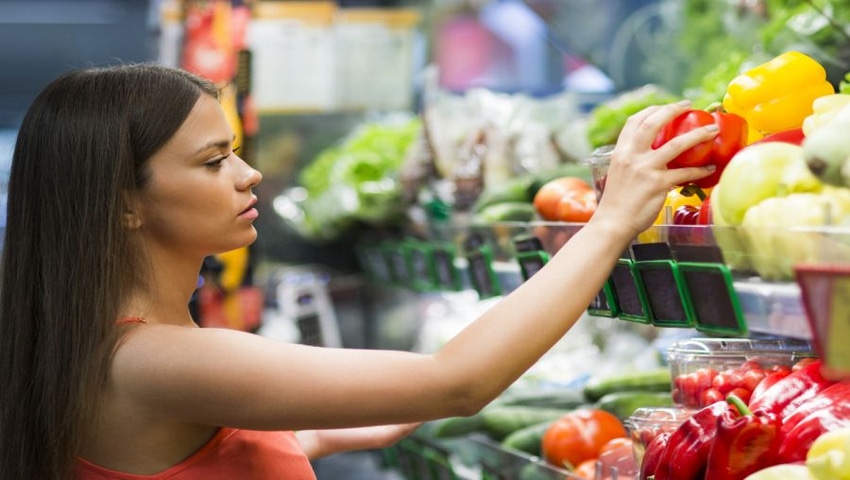The biggest challenge facing non-GMO and organic products is the battle for retailer shelf space.

Most consumers are searching for healthier alternatives at restaurants and on their favorite retailer’s shelves. Sixty-six percent of consumers eat healthier in 2016 than they did before, according to Nielsen Answers, Wellness Track, Total U.S., All Outlets Combined, 52-weeks ending Jan. 23, 2016. This accounts for the increases in both the organic and non-GMO (genetically modified organism) segments, up 16 percent and 17 percent, respectively, according to Nielsen.
There's a lot of confusion around the benefits and the differences between organic and non-GMO products. Most consumers believe non-GMO to be a healthy alternative to organic; this is not true. Non-GMO simply means that the seeds used to produce the crops were not genetically modified. Genetically modified crops were developed, in theory, to increase food yields and decrease costs for farmers. They were designed to be more pest- and weed-resistant. Organic products are non-GMO by default, but more importantly, they were produced without the use of herbicides and pesticides.
Using the adage, “You are what you eat" as a guide to help consumers decide which products best meet their nutritional requirements, they need to decide if they want products that are modified and/or produced with the use of harmful chemicals compared to products that are grown sustainably. Just as consumers worry about the quality of the water the plants absorb, they should also be concerned about chemicals that can be absorbed by the plant as well. This includes all pesticides and herbicides.
During the SupplySide West 2016 panel discussion “Supply Side West 2016: GMOs: Today’s Challenges, Tomorrow’s Opportunities," we talked about several of the reasons for this confusion between non-GMO and organic. I believe that the non-GMO effort has done a better job marketing and communicating with consumers compared to USDA organic certified.
The biggest challenge facing non-GMO and organic products is the battle for retailer shelf space. Retailer shelf space is limited in every category, as the competition is fierce, especially from large consumer packaged goods (CPG) companies with virtually unlimited resources. It costs a great deal to put a product on a retailer’s shelf, and even more to keep it there. Small health-conscious brands are at a significant competitive disadvantage compared to their larger counterparts. For this reason, it is imperative that the small health-conscious brands leverage their ability to drive more shopper foot traffic into the retailers’ stores.
Generically speaking, retailers don't make anything; they sell other people’s products. What they offer is real estate: shelf space for brands to sell their products on. For this reason, small brands need to pay attention to who buys their product along with the other items they purchase while in the retailer’s store. This is called Market Basket. Organic and non-GMO products are responsible for a higher Market Basket than their mainstream counterparts. This is because consumers looking for organic or non-GMO products are willing to pay a premium for items that best meet their needs and the needs of their families. For example, a shopper purchasing organic bread will most likely have an organic spread in their shopping/market basket. Leveraging this message with retailers is critical to the survival and growth of small health-conscious brands.
Fifty-three percent of consumers are willing to pay more for foods that promote health benefits, according to Nielsen. Fifty-four percent of shoppers read nutritional labels. Thus, there has been an explosion of products making health claims on retailer shelves. Savvy retailers pay close attention to these trends and work hard to increase their selection of natural (+11.7 percent), organic (+15 percent), non-GMO (+14.3 percent), gluten-free (+13.6 percent), and no artificial sweeteners, colors or flavor, etc. Consumers want products with clean labels, also known as, labels that are easy-to-understand that clearly list products found in nature.
Transparency is the new buzzword in natural products. While some companies use the term as a marketing slogan, natural organic products use the term to convey trust and authenticity in the products they sell.
It's important to remember that consumers vote for the products they want with their dollars. Consumers have virtually endless choices when it comes to how they spend their money and which products they buy. Organic products can be found in every channel. Non-GMO and organic brands need to work closely with retailers to encourage loyal consumers to shop their stores.
Daniel Lohman ([email protected]), CPSA, is a strategic advisor in the organic and CPG Industry. He is certified at the highest level of category management proficiency: certified professional strategic advisor. With more than 25 years of experience, he serves as an advisor to Circle Up, Naturally Boulder and The Innovation Center of the Rockies. He is a next mentor, Brick Meets Click black belt and a speaker and trainer for Natural Products EXPO, World Alliance For Retail Excellence And Standards and ECRM. He is also an internationally published author whose articles appear in PROGRESSIVE GROCER, Supermarket News, The Natural Food Merchandiser, New Hope 360, next, World Alliance for Retail Excellence and Standards, and LOHAS.
About the Author(s)
You May Also Like




.png?width=800&auto=webp&quality=80&disable=upscale)